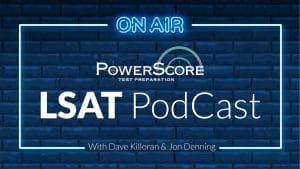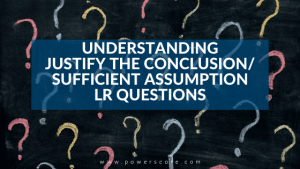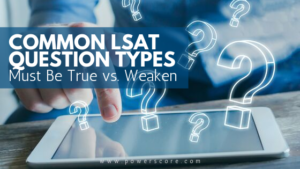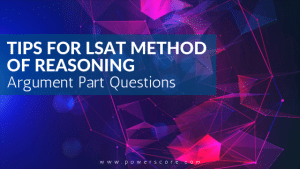We're at the final stretch! Before we can get to Part 9, here's a recap on our purpose as stated in the first post on Source Arguments.The majority of LSAT Logical Reasoning questions have an argument in their stimulus and most will contain some sort of flawed reasoning. In this series, we will address a variety of the flaws that tend to appear with some frequency. I’ll examine common mistakes that authors on the test make. This should … [Read more...]
Flaws in Logical Reasoning Part VIII: Appeal to Authority
Before continuing on to Part Eight of our flaws in LR on the LSAT, let’s review once more. Here’s how I began the first post in this series, where we looked at Source Arguments: The majority of LSAT Logical Reasoning questions have an argument in their stimulus and most will contain some sort of flawed reasoning. In this series, we will address a variety of the flaws that tend to appear with some frequency. I’ll examine common mistakes that … [Read more...]
Flaws in Logical Reasoning Part VII: Internal Contradiction
Part 7 is here! But before we get going on the topic of internal contradiction, let's start with a review the importance of this series Take a look at how I began the first post, where we looked at Source Arguments. The majority of LSAT Logical Reasoning questions have an argument in their stimulus and most will contain some sort of flawed reasoning. In this series, we will address a variety of the flaws that tend to appear with some frequency. … [Read more...]
Flaws in Logical Reasoning Part VI: Uncertain Use of a Term
Welcome back to our series on some of the common flaws you'll find in LR questions on the LSAT! We're already half way through and heading on to Part 6! Let's remember our roots with how I began the first post on Source Arguments in this series: The majority of LSAT Logical Reasoning questions have an argument in their stimulus and most will contain some sort of flawed reasoning. In this series, we will address a variety of the flaws that tend … [Read more...]
Flaws in Logical Reasoning Part V: False Dilemma
Part Five of our series examining common flaws in LR questions is here! But, before we continue, here's a recap of our mission as stated in the first post on Source Arguments. The majority of LSAT Logical Reasoning questions have an argument in their stimulus and most will contain some sort of flawed reasoning. In this series, we will address a variety of the flaws that tend to appear with some frequency. I’ll examine common mistakes that … [Read more...]
Flaws in Logical Reasoning Part IV: Errors of Composition and Division
Let's recap the purpose pf this series before we tackle Part Four. Why is it so important to understand these argumentative errors? Here’s how we started the series when looking at Source Arguments: Considering the vast majority of LSAT Logical Reasoning questions will have an argument in their stimulus, and the vast majority of those arguments will contain some sort of flawed reasoning, I thought I would take a moment to address a variety of … [Read more...]
Flaws in Logical Reasoning Part III: Exceptional Cases and Over-generalizations
Before continuing with Part Three of our Flaws in Logical Reasoning series, let’s review the importance of understanding argumentative errors. Here’s how I began the series when we looked at Source Arguments: The majority of LSAT Logical Reasoning questions have an argument in their stimulus and most will contain some sort of flawed reasoning. In this series, we will address a variety of the flaws that tend to appear with some frequency. I’ll … [Read more...]
LSAT PodCast Episode 12: Sufficient Assumption/Justify the Conclusion Questions
Episode 12 continues the discussion from the last episode by looking at the other Assumption question type: Sufficient Assumptions (also known as Justify the Conclusion). Dave and Jon provide an extensive analysis of this unique LR task, exploring everything from how to spot Justify questions to the relationship between Assumption and Justify—key similarities and differences—to powerful mechanistic techniques like the Justify Formula to help you … [Read more...]
Flaws in Logical Reasoning Part II: Circular Reasoning
Before we continue examining common flaws in LSAT LR questions, let’s review the importance of understanding these argumentative errors. Here’s how I began the first post in this series, where we looked at Source Arguments: The majority of LSAT Logical Reasoning questions have an argument in their stimulus and most will contain some sort of flawed reasoning. In this series, we will address a variety of the flaws that tend to appear with some … [Read more...]
Flaws in Logical Reasoning Part I: Source Arguments
The majority of LSAT Logical Reasoning questions have an argument in their stimulus and most will contain some sort of flawed reasoning. In this series, we will address a variety of the flaws that tend to appear with some frequency. I’ll examine common mistakes that authors on the test make. This should prove useful for Flaw in the Reasoning questions (which account for about 15% of LR questions.) It should also help with other question types … [Read more...]
LSAT PodCast Episode 8: Logical Reasoning Outliers – The Black Sheep
The episode begins with a quick rundown of the latest news, from Dave’s current Vegas adventure for March Madness to an update on the college admissions scandal and finally a look at the week in the LSAT World. Then they turn to the night's central theme! How to use the final week before an LSAT to prepare for outlier elements and oddball scenarios. Specifically, they focus on two of the most obscure LR question types, Cannot be True and Evaluate … [Read more...]
Understanding Justify the Conclusion/Sufficient Assumption LR Questions
One of the common questions that comes up with students studying for the LSAT is how do Justify/Sufficient Assumption questions work, and how do they differ from regular Assumption/Necessary Assumption questions? The mere fact that there are different types of assumption questions is part of the problem. But the unique way that these questions work also causes issues. Let's take a closer look at this question type and try to understand the big … [Read more...]
Common LSAT Question Types: Must Be True vs. Weaken
When approaching Logical Reasoning on the LSAT, I think most students clearly recognize the importance of (1) understanding the unique properties of individual question types, and (2) having dedicated strategies to consistently apply when faced with a particular type of question. That is the value in knowing how to recognize, say, a Parallel Reasoning question, and then understanding the proper approach to take when attacking Parallel … [Read more...]
Tips for LSAT Method of Reasoning: Argument Part Questions
When you start to move beyond the halfway point of your studies and come into the home stretch of prep, its common to feel like you're in the dog days of the LSAT. That Logical Reasoning section starts to weigh down the latter portion of your efforts. Method, Flaw, Parallel, Principle...the list of abstract question stems seems never-ending. Gone are the days of specificity and precision, only to be replaced by the vague wording and abstraction … [Read more...]













